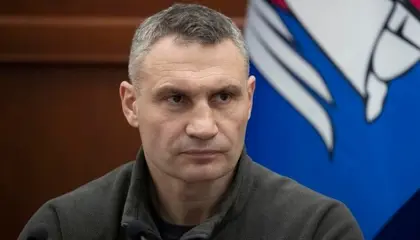President Volodymyr Zelensky and Kyiv Mayor Vitali Klitschko have publicly fallen out for the first time since the beginning of Russia’s full-scale invasion on Feb. 24.
Former professional boxer and Mayor of Kyiv, Vitali Klitschko, has entered a heated but somewhat rhetorical debate with the President of Ukraine. Both Klitschko and Zelensky have argued over the efficiency of the capital’s local government work in helping Kyiv residents to cope with the power outages caused by Kremlin’s missile attacks on Ukraine’s power grid.
- Obtain the most current Ukraine news articles released today.
JOIN US ON TELEGRAM
Follow our coverage of the war on the @Kyivpost_official.
What happened?
In his nightly address to Ukrainians on Friday, Nov. 25, Zelensky described how most regions across Ukraine had suffered large-scale power outages, but some of “the biggest problems” were in Kyiv.
“I know that, unfortunately, not in all cities, the local government has done a good job. In particular, there are many complaints in Kyiv. Please pay attention. Kyiv residents need more protection,” he told the country.
Zelensky implied that Klitschko, the capital’s major, had not put enough effort into helping Kyiv residents to cope with the consequences of the Kremlin’s severe attacks on Ukraine’s power grid. Ukraine’s president stressed that many of the city’s residents had been without power “for 20 or even 30 hours” and called for “more support” and “quality work” from the mayor’s office.
Zelenskyy has also criticized Klitschko over the provision of emergency shelters (or so-called “points of invincibility).”
“I expect quality work from the mayor’s office. No one will forgive anyone for desecrating the Kyiv points of invincibility, as well as lies in reports at various levels,” Zelensky said.
How did Klitschko respond?
Klitschko hit back, ridiculing Zelensky’s polemics as “meaningless” in the context of the Russian invasion. He said 430 “warming centers” (points of invincibility) were helping Kyiv residents cope with the consequences of Russian attacks on energy facilities, and more than 100 more were planned in case of extreme conditions.
“I don’t want to engage in political battles, especially in the current situation. It’s pointless. I have something to do. But I note that there is no need to manipulate. It looks, to put it mildly, ugly. Both for Ukrainians and our foreign partners,” he posted on his Telegram channel.
Has the President’s Office reacted?
On Sunday, Nov. 27, the head of the ruling party’s faction, David Arakhamia, suggested that Klitschko set up the low heating points in the Ukrainian capital within a week and then jointly inspect them.
“We will not allow ourselves to be drawn into a political struggle regarding Kyiv’s “warming centers,” Mr. Arakhamia posted on his Telegram channel. “I suggest the city authorities correct the mistakes, and we will inspect them together with the mayor. This will be the best proof that none of us is looking for speculation.”
Is the situation with the warming points in Kyiv that bad?
Not that bad, actually. The day after Zelensky’s comments, deputies of the ruling party inspected the capital’s warming centers. According to the results, only 20 percent of the 530 points checked by the authorities were closed, David Arahamiya said.
It suggests that Klitschko was telling the truth in saying that 430 heating points are now operating in the capital.
Was it the first conflict between the capital’s mayor and the president?
No, and not even the second one. In peacetime, both Zelensky and Klitschko experienced a long-standing political conflict – Klitschko was an associate of Zelensky’s predecessor, Petro Poroshenko. In the summer of 2019, Zelensky’s office even succeeded in removing Klitschko, but in 2020 he was re-elected for a new term.
Klitschko believes that the reason for tense relations with Zelensky is that he is not a representative of this government.
You can also highlight the text and press Ctrl + Enter



